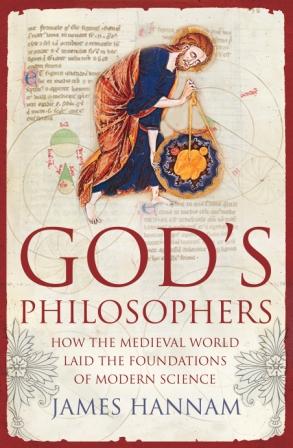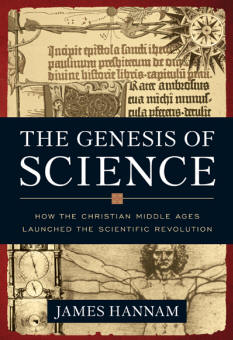
|
If you have enjoyed Bede's Library, you can order my book, The Genesis of Science: How the Christian Middle Ages Launched the Scientific Revolution (US) from Amazon.com or God's Philosophers: How the Medieval World Laid the Foundations of Modern Science (UK) from Amazon.co.uk. |
|
For my latest thoughts on science, politics, religion and history, read Quodlibeta
|
![]()
![]()
![]()
![]()
Is it reasonable to believe in a god?
![]()
Cygnus's affirmative rebuttal
In reading the negative construction, I was awed by the continued references to well-known philosophers and scientists both living and dead. Nowhere in the construction, however, did I find any reason to accept that a god was a reasonable explanation for our current status or for the status of our universe. Nowhere did I find an argument that a belief in a god was indeed reasonable.
An appeal was made to the Big Bang Theory but I did not find any reason why a god should be responsible for this occurrence nor did I see a valid reason why this popular theory should be accepted as factual. That the Big Bang Theory is the most widely accepted explanation for the start of the universe is without question. I think that it should be important to note that it is still a theory and, as such, is not gospel. The possibility exists that an explanation exists that is more in line with what Russell, Teller and others held - that the universe is an eternal place with an ever-changing environment. Science has not shown these men to be wrong in the sense that my opponent suggests. It has merely moved on to a more popular theory. The difference here should be clear.
One of the main problems I have with my opponent's construction is that certain things are taken as true without any (or very much) support and then used as premises for his larger argument. For example, it is stated as a truth that the universe is contingent and finely tuned. Not only do I find both of these things in error but I find them to be two ploys used by people who push the argument for Creationism much like the misquoted and badly abused second law of thermodynamics. Let's look at these words and determine if they can be unequivocally pinned on our universe.
Contingent is defined, in this sense, as being determined by conditions or circumstances not yet known to us. A synonym for contingent is dependent. For the universe to be considered contingent we must have a clear definition of what it is dependent upon. We cannot say that the universe is contingent, as we do not know what it is contingent upon. We cannot use the statement "the universe is contingent" as an argument to find what it is contingent upon. This is known as putting the cart before the horse.
The Catholic Encyclopedia has something to say about the argument from contingency. After defining the word and how the argument is used, it goes on to say this: "The argument supposes, it is true, the real existence of contingent being and that existence is denied by many thinkers…" As can be seen, the way that my opponent has used this argument is backwards.
Finely-tuned is not as easy to define. This is really a subjective determination and one that is employed by Creationists like Hugh Ross more than any other. What would a finely-tuned universe look like? How could we ever compare the one universe that we know of to other universes when by my opponent's very reasoning, this is the only universe that we have any evidence for? It is not even possible to say that this universe is tuned, let alone finely-tuned, as this also implies that there is some force that has caused it to be so. This is, again, placing the cart before the horse. Let us first determine who or what is tuning and THEN determine if this tuning is of the fine or of the rough sort. To do it any other way is not practical and not logical.
In his closing remarks, my opponent gave three possibilities - chance, necessity and purpose - as to how the universe arrived at its current state. While I disagree with only three possibilities, I will address those and try to show why the one first cast off is the most likely.
I will start my response to these three by stating that I agree with my opponent that necessity is not likely as it is not falsifiable. We cannot say that the universe must exist because it is just as possible that the universe never exist than that it does exist.
Moving on, I would like to look at purpose. For us to accept purpose as the reason for the state of the universe, we would need to see at least some positive, tangible evidence for this possibility to be accepted as true over all others. Is there any such evidence? I believe not but it is possible. Was there any provided by my opponent? There was none that I saw. To my eyes, it was simply selected as the one of the three that best fit the preconceived notions of the observer.
The last possibility listed was chance. Chance was discarded by my opponent for what seemed to me to be all of the wrong reasons. For example, for chance to be accepted as plausible by my opponent, a vast array of universes must exist for life to have sprung up in this one. Is it not possible that chance alone could suffice as an explanation for life in this one universe? Regardless of how astronomical it might seem, the possibility that chance accounts for our existence is valid and must be done away with something a little bit more solid than the argument from incredulity which states that if something is hard to conceive then it must be impossible.
Chance may not explain how we got here. There are other possibilities. Without any evidence to support any other possibilities, however, it is the one that best suits the situation. As all that I have seen in the positive construction from my opponent is an appeal to emotion, I maintain that it is unreasonable to believe that a god exists and is responsible for our existence.
Next page of debate
![]()

